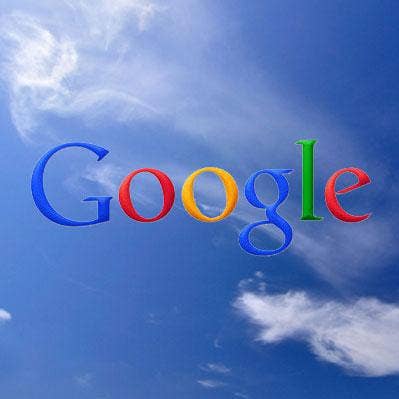Alphabet Stock Drops on Disappointing Google Revenue
‘Based on the continued strengthening of the U.S. dollar relative to key currencies, we expect to continue to (face) headwind to our revenues and operating income again in the second quarter,” chief financial officer Ruth Porat says.

Shares of Alphabet Inc. sank more than 7 percent today in after-hours trading after Google’s parent company missed Wall Street first-quarter revenue targets amid slowing online advertising sales growth, and its earnings took a hefty $1.7 billion hit from another European Commission fine.
Overall results for the quarter ended March 31 were driven by ongoing strength in mobile search, along with important contributions from YouTube, followed by Google Cloud’s cloud computing business, chief financial officer Ruth Porat said during the earnings call, which came after the stock market’s close.
Alphabet reported $36.34 billion in quarterly revenue, up 17 percent from $31.15 billion in the same quarter of 2018. Its net income increased to $6.65 billion or $9.50 diluted earnings per share (EPS), down from the $9.4 billion, or $13.33 EPS, earned in the prior-year quarter.
“There was a significant swing year-over-year in the impact of currency movements on our results this quarter, from a big tailwind in the first quarter of 2018 to a headwind in 2019,” Porat said. “These affect both revenues and operating income, given the majority of our expenses are in the U.S. Based on the continued strengthening of the U.S. dollar relative to key currencies, we expect to continue to (face) headwind to our revenues and operating income again in the second quarter.”
Google advertising revenue increased 15.3 percent to $30.72 billion compared to the prior-year quarter, when higher growth was tabbed at 24.4 percent, as Google continues to face declining ad prices.
"The timing of product changes in ads at times can have an impact on year-on-year growth rates," Porat said. "We will continue to make changes with a focus on the long-term best interest of users and advertisers."
Analysts had expected ad revenue of $31.48. billion
“The biggest driver affecting both (costs-per-clicks) and click trends is YouTube engagement ads, with YouTube clicks representing the vast majority of total clicks,” Porat said. “While YouTube clicks continued to grow at a substantial pace in the first quarter, the rate of YouTube click growth decelerated versus what was a strong Q1 last year, reflecting changes that we made in early 2018, which we believe are overall additive to the user and advertiser experience.”
Alphabet’s results fell short of Wall Street’s expectations for $37.36 billion in revenue and diluted EPS of $9.91. Excluding the European Commission fine, Alphabet’s diluted EPS of $11.90 beat analysts’ consensus estimate of $10.16.
Alphabet’s stock, which finished up 1.47 percent at $1,296.20 per share at market close, dropped more than 7 percent in after-hours trading at $1,200.70 of 7:15 p.m. EST.
The company continued its practice of not allotting a separate line item for revenue from its Google Cloud business, which encompasses Google Cloud Platform (GCP) and its G Suite collaboration and productivity tools including Gmail, Hangouts, Calendar, Google+ and Docs. Cloud revenue instead is lumped into Google’s “other” revenue category, which also encompasses hardware (including Nest) and Google Play. The “other” revenue climbed to $5.45 billion in the first quarter -- an increase of 25 percent compared to $4.35 billion for the first quarter last year, when it jumped 36 percent -- fueled by Google Cloud and Google Play and partially offset by hardware sales. Analysts had expected this year’s number to reach $5.67 billion.
“Google Cloud Platform remains one of the fastest growing businesses in Alphabet, with strong customer momentum reflected in particular in demand for our compute and data analytics products,” Porat said. “Strong growth in Play was driven particularly by performance in (Asia-Pacific). Hardware results reflect lower year-on-year sales of Pixel, reflecting, in part, heavy promotional activity industry-wide given some of the recent pressures in the premium smartphone market.”
“We are pleased with the momentum of Google Cloud Platform, with balanced growth of both new customers and expansion within existing customers driving revenue growth,” Porat said.
New Google Cloud CEO Thomas Kurian in February vowed to dramatically increase investments in No. 3 Google Cloud’s sales organization and channel partner ecosystem to accelerate growth and better compete against Amazon Web Services and Microsoft Azure, the No. 1 and 2 cloud providers, respectively. At Google Next ’19 in San Francisco earlier this month, Kurian heralded Google Cloud’s push for enterprise customers.
“Thomas has really hit the ground running,” Google chief executive Sundar Pichai said. “We are also deeply committed to becoming the most customer-centric cloud provider for enterprise customers and making it easier for companies to do business with us, thanks to new contracting, pricing and more.”
“We are really accelerating, and scaling up go-to-market both internally and through our channel partners has been a huge focus,” Pichai said. “We are building a strong business across all our verticals, and we definitely are seeing strong momentum.”
Alphabet increased its employee headcount to 103,459, from 98,771 in the fourth quarter.
“Consistent with prior quarters, the majority of new hires were engineers and product managers,” Porat said. “In terms of product areas, the most sizable headcount increases were in cloud for both technical and sales roles.”
Alphabet earnings took a hit from the $1.7 billion European antitrust fine assessed in March. The Mountain View, Calif.-based Alphabet previously had warned that its operating income, net income and EPS would be impacted by the charge for the EUR 1.5 billion fine levied by the European Commission, which ruled that certain Google AdSense contractual provisions with third-party websites using the Google search bar amounted to anti-competitive restrictions.